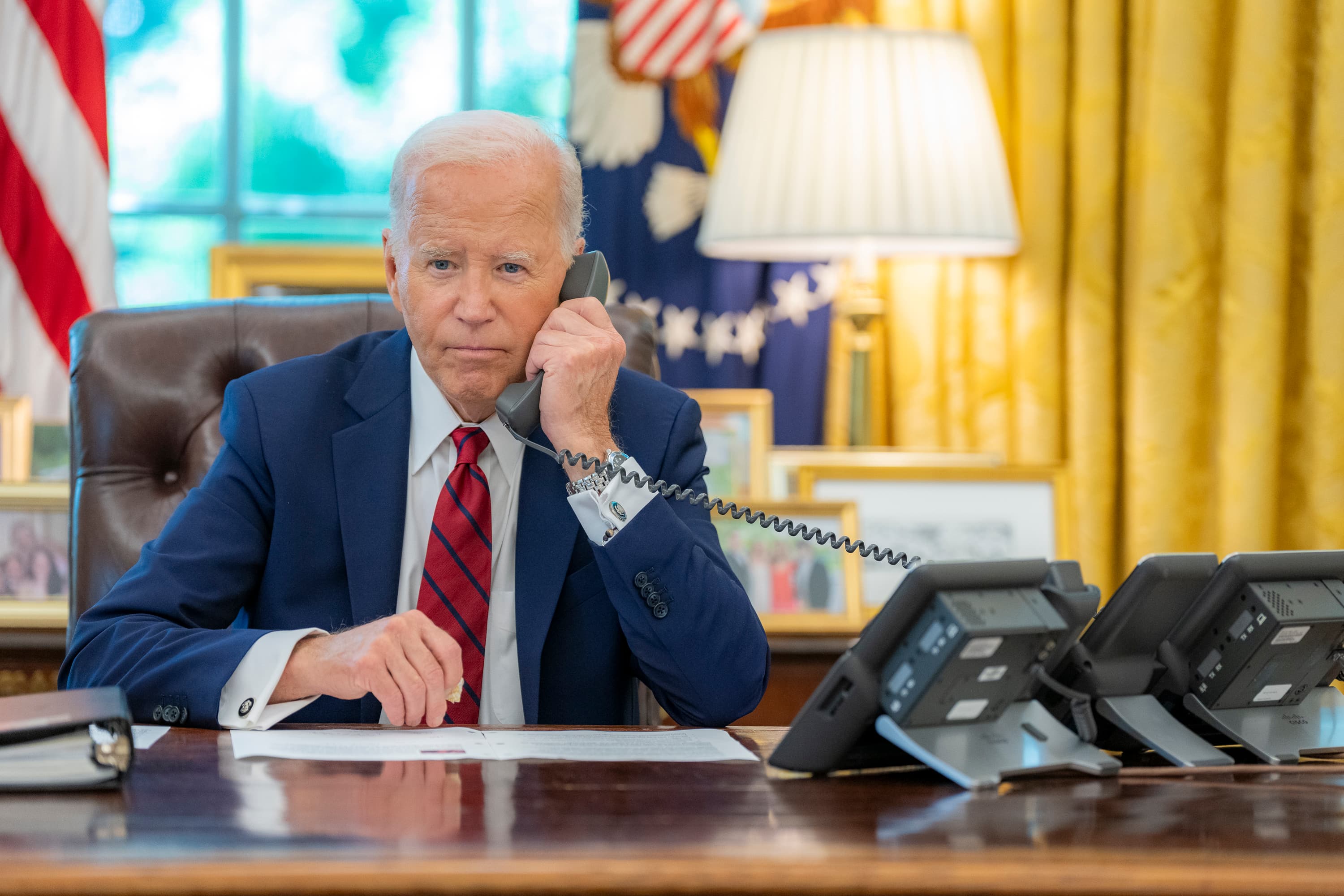Former Gov. Pat McCrory, who signed North Carolina’s anti-trans bathroom bill, running for Senate in 2022
McCrory is pitching his candidacy as a chance for conservatives to wrest control of the U.S. Senate from Democrats.

Former North Carolina Gov. Pat McCrory (R) has announced he will run for the U.S. Senate seat currently held by Sen. Richard Burr (R), who previously announced he wouldn’t seek re-election, in 2022.
McCrory released a campaign ad on Wednesday pitching himself as a defender of conservative values who would wrest control of the U.S. Senate from the Democratic Party and the political Left, to which the party is allegedly beholden (despite myriad evidence to the contrary). McCrory noted that, in the current chamber, split 50-50 between the parties, ties on major legislation are broken by Vice President Kamala Harris, who he attempts to paint as a bogeyman for conservative voters.
In the ad, McCrory claims a 50-50 gives “the Left everything they want to radically change America for generations to come.” He adds: “It’s time we join together and take back the Senate from Kamala Harris.
For the last few years, I’ve sat on the sidelines and watched people like Chuck Schumer & the far-left drag this country toward radical liberal policies.
I can’t sit on the sidelines anymore.
So I’m in! pic.twitter.com/s2MwtBlalv
— Pat McCrory (@PatMcCroryNC) April 14, 2021
In typical fashion for political ads, McCrory’s statements omit crucial information about the state of politics in Washington. While Democratic control has allowed most of President Biden’s nominees for key cabinet or agency positions to be approved, Democrats have also failed to get major policies they ran on last cycle, like increasing the minimum wage, through the Senate, in part due to the independence of Democratic senators like Joe Manchin (W.V.) and Kyrsten Sinema (Ariz.), and in part due to the filibuster, which requires 60 votes to stop debate and bring issues up for a vote.
McCrory also attempts to cast himself as an “outsider” running to bring “common sense” to Washington, despite the fact that he previously served for 14 years as the mayor of Charlotte, and has mounted three separate bids for governor in 2008, 2012, and 2016, with his second bid being the only successful one.
Nationally, McCrory is best known for his decision to sign HB 2, the so-called “bathroom bill,” which barred transgender people from using bathrooms and other shared facilities matching their gender identity, and banned local governments from enacting inclusive ordinances protecting LGBTQ people from being discriminated against.
While McCrory’s reputation prior to HB 2 was that of a conservative technocrat and business-minded Republican who largely eschewed divisive social issues, that reputation was scuttled permanently following his embrace of the bill, which some political observers at the time believed would help him consolidate Republican voters and win re-election in 2016. Emails published by The Charlotte Observer revealed that McCrory actually had misgivings about the law and had tried to urge Republican lawmakers to limit the extent of HB 2, but eventually caved to pressure from social conservatives and well-connected interest groups and signed it into law without any concessions.
See also: Tennessee House passes “Business Bathroom Bill” in effort to shame trans-friendly businesses
But the bill had the opposite effect of what some Republican voters had threatened in those emails, sparking an economic backlash against the Tar Heel State instead of bolstering McCrory’s re-election bid. The bill’s passage prompted boycotts, cancellations of major conventions and concerts, the relocation of major sporting events, scuttled expansions of businesses, and bans on government-funded travel to North Carolina. In total, the bill is estimated to have cost the North Carolina economy more than $3.76 billion in lost business over a 12-year period.
McCrory defended the law in several news appearances, including NBC’s Meet the Press and on Megyn Kelly’s show on Fox News, insisting that the law was needed for public safety and to protect the privacy of women and children from sexual offenders who would exploit the law for their own gain. He doubled down on those comments in a campaign ad released amid polling showing that the law — and the backlash to it — were unpopular among North Carolinians.
The law was eventually “repealed” — at least in name — by legislation signed by Gov. Roy Cooper in 2017, which barred local governments from passing any LGBTQ-inclusive nondiscrimination ordinances until December 2020 and states that only the General Assembly may approve laws regarding the use of public restrooms, meaning any ordinances passed after December 2020 are limited in their scope as it pertains to public accommodations. Earlier this year, once the ban on local ordinances was lifted, cities such as Chapel Hill, Hillsborough, and Carrboro began passing their own LGBTQ-inclusive ordinances.
After being defeated for re-election, McCrory, who became a conservative talk radio host, defended the Trump administration’s rollback of nondiscrimination protections for transgender students, again fixating on the issue of which bathrooms trans students would be eligible to use. He told NPR that the Obama-era protections for trans students were “changing the basic values that we’ve used in our schools for decades and decades,” calling it “a major change in culture norms,” according to the American Independent.

In seeking the Republican nomination for the U.S. Senate, McCrory will face off against former U.S. Rep. Mark Walker, a Trump acolyte, and could soon face other Republicans eyeing a bid, including U.S. Rep. Ted Budd, Lt. Gov. Mark Robinson, and Lara Trump, a North Carolina native who is the daughter-in-law of former President Donald Trump. His time as governor would likely give him a significant edge in name recognition, which could help with fundraising needed to win the nomination.
Interestingly, McCrory’s bid comes at a time when the Republican Party has made opposition to transgender rights an unofficial cornerstone of its 2022 agenda, with lawmakers in almost 30 states introducing bills to ban transgender athletes from sports, deny gender-affirming health care to trans youth, ban LGBTQ-related content from the classroom, and allow businesses, individuals, and health care workers to deny service to LGBTQ individuals. It remains to be seen whether McCrory’s previous experience with these issues will be appealing to Republican primary voters.
Democrats didn’t waste any time blasting the governor for his actions while in office.
“North Carolinians remember exactly who Pat McCrory is — a failed politician who signed hateful and divisive legislation into law, hurt our national reputation, and damaged our state’s economy,” Bobbie Richardson, the chairwoman of the North Carolina Democratic Party, said in a statement to The Charlotte Observer. ” North Carolinians voted him out of office in 2016 because of that failed record. We have some free advice — don’t quit your day job, Pat.”
Read more:
President Biden nominates gay police chief to lead Customs and Border Protection
West Virginia governor says he’ll sign transgender athlete ban into law
North Carolina Republicans want to force teachers to “out” transgender students to their parents
Support Metro Weekly’s Journalism
These are challenging times for news organizations. And yet it’s crucial we stay active and provide vital resources and information to both our local readers and the world. So won’t you please take a moment and consider supporting Metro Weekly with a membership? For as little as $5 a month, you can help ensure Metro Weekly magazine and MetroWeekly.com remain free, viable resources as we provide the best, most diverse, culturally-resonant LGBTQ coverage in both the D.C. region and around the world. Memberships come with exclusive perks and discounts, your own personal digital delivery of each week’s magazine (and an archive), access to our Member's Lounge when it launches this fall, and exclusive members-only items like Metro Weekly Membership Mugs and Tote Bags! Check out all our membership levels here and please join us today!


























You must be logged in to post a comment.